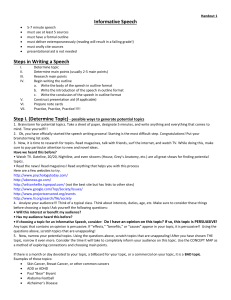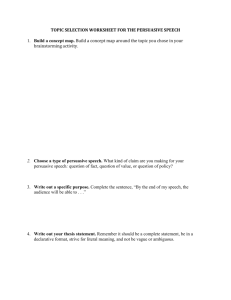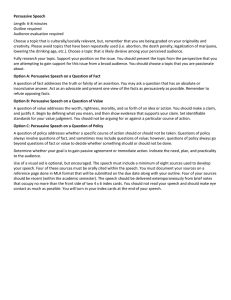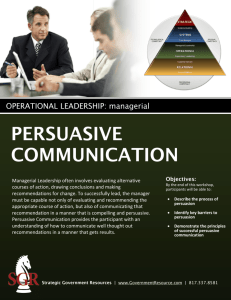I. Generating Potential Topics
advertisement
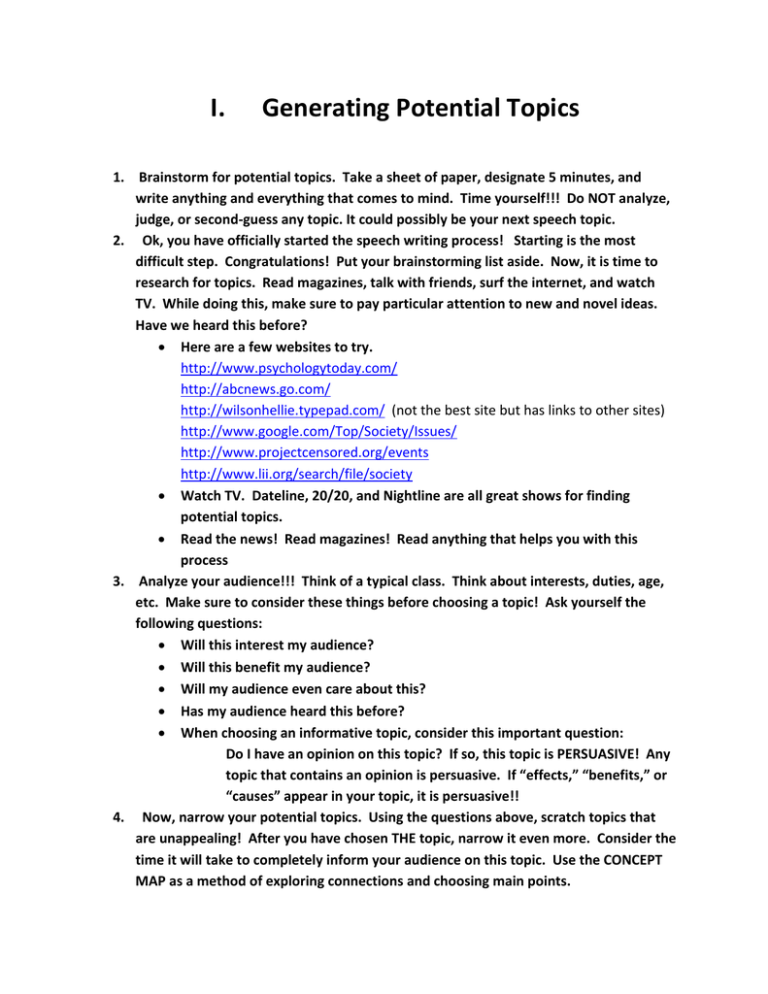
I. Generating Potential Topics 1. Brainstorm for potential topics. Take a sheet of paper, designate 5 minutes, and write anything and everything that comes to mind. Time yourself!!! Do NOT analyze, judge, or second‐guess any topic. It could possibly be your next speech topic. 2. Ok, you have officially started the speech writing process! Starting is the most difficult step. Congratulations! Put your brainstorming list aside. Now, it is time to research for topics. Read magazines, talk with friends, surf the internet, and watch TV. While doing this, make sure to pay particular attention to new and novel ideas. Have we heard this before? • Here are a few websites to try. http://www.psychologytoday.com/ http://abcnews.go.com/ http://wilsonhellie.typepad.com/ (not the best site but has links to other sites) http://www.google.com/Top/Society/Issues/ http://www.projectcensored.org/events http://www.lii.org/search/file/society • Watch TV. Dateline, 20/20, and Nightline are all great shows for finding potential topics. • Read the news! Read magazines! Read anything that helps you with this process 3. Analyze your audience!!! Think of a typical class. Think about interests, duties, age, etc. Make sure to consider these things before choosing a topic! Ask yourself the following questions: • Will this interest my audience? • Will this benefit my audience? • Will my audience even care about this? • Has my audience heard this before? • When choosing an informative topic, consider this important question: Do I have an opinion on this topic? If so, this topic is PERSUASIVE! Any topic that contains an opinion is persuasive. If “effects,” “benefits,” or “causes” appear in your topic, it is persuasive!! 4. Now, narrow your potential topics. Using the questions above, scratch topics that are unappealing! After you have chosen THE topic, narrow it even more. Consider the time it will take to completely inform your audience on this topic. Use the CONCEPT MAP as a method of exploring connections and choosing main points.
